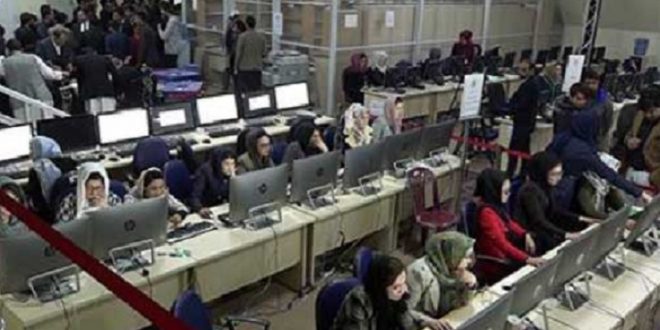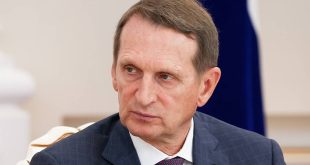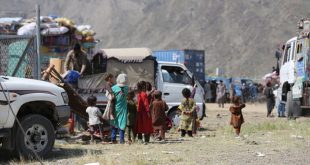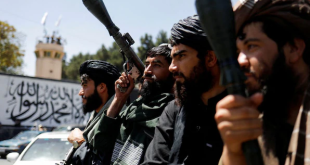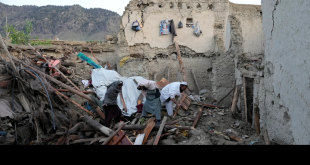By Wali Muhammad Alizai
Internet, especially social media, is undermining the role of the established media that was once used for reshaping public opinion, propagating state’s narrative, and campaigning for public office. Social media provides platform to everyone for influencing public opinion, to dissent with state narrative and to compete with the rival runner for public office.
4.39 billion world’s population, according to Digital 2019 Reports, uses internet services, and out of that 3.48 billion people are social media users. The report specifies that 9.70 million users have access to internet services in Afghanistan, including 3.80 million Afghans who are active on social media.
On September 28, presidential election was held in Afghanistan amidst threats of violence from Taliban and tight security measurements by Afghan government to counter violence attempts, 14 runners for presidential office participated in election. The turnout, between 20% to 30%, is being considered low, as majority of the candidates were uncertain about the election taking place and didn’t mobilize the voters properly, although the government had taken adequate steps for conducting election.
The incumbent president Dr. Ashraf Ghani and Dr. Abdullah Abdullah have been considered the chief participants. Alongside organizing campaigning assemblies in various provinces, tools and techniques of computational campaigning were used at large in Afghan election’s campaigns, especially by the “State Builder Team” and the “Stability and Convergence Team”.
The Cyber Troops of both teams, during the computational election campaign, employed the “Creation Of Disinformation and Manipulated Media” technique against each other, for defaming the opponent presidential nominee. A fake website, falsely named New York Times, architected allegations that Abdullah Abdullah had received $39 million from Pakistan. Likewise, Quotes from Sushma Swaraj’s book, never written, were circulating on social media, referring Ghani and Abdullah having discriminatory sentiments for fellow ethnicities.
Some Afghan websites were also the part of spreading disinformation on social media, and their absurd spicy materials are shared widely, which created confusion among the readers.
The other technique The Cyber Troops and respective supporters of the presidential contestants put in practice was “Trolling, Doxing and Harassment Technique”. The opponent candidate was trolled; his personal life and family were abusively assaulted; his religious understanding and belief were questioned.
After the polls, each team’s supporters are claiming the victory of their supported presidential team, and accusing the rival teams being involved in post-election rigging; absurd result sheets are being shared at large; fabricated videos, displaying the opponent team costing fake votes, are being posted, on social media.
Leveling baseless allegations and spreading disinformation illustrate the political immaturity of the Afghan social media handlers. Among the Afghan nation, fraction and hatred are deepened by such vicious acts. It leads to uncertainty and chaotic political circumstances, and diminishes public faith in political process, which is perilous for emerging democracy in Afghanistan.
Trolling, doxing and harassing undermine respect and tolerance among various political school of thoughts within Afghanistan. Constructive criticism would be replaced with personal malignancy which poses threats to political culture, and having psychological impacts on the society.
All candidates and their respective Cyber Troops should refrain from announcing pre-judgement about the election results, and wait patiently for the Independent Election Commission’s (IEC) authorized and final announcement of election results, anticipated preliminary results to be announced on October 19 and final results will be announced on November 7.
For Afghanistan, it is an enormous megahit that election was held despite all odds and posed terroristic threats, which is a setback for the enemy. Questioning the results and legitimacy of election ought to be avoided in order to display political maturity, political tolerance and firm belief in democratic process.
Social media has interconnected the world more sophisticatedly. From all over the world, political discourse among the Afghan handlers is being monitored regularly. So they are better to present the chief gains of Afghan state in fields of security, diplomacy, economy and politics, on social media. The world should be made aware of the desire for peace and democracy, and culture and historical richness of the Afghan demos via social media, countering the insane propaganda portraying afghans as barbarians, savages and religious fanatics.
 Afghanistan Times
Afghanistan Times
